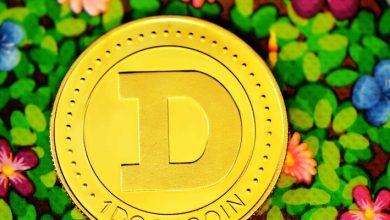Risks and Rewards: Navigating the DeFi Landscape

- Understanding the Basics of DeFi
- Exploring the Potential Rewards of Decentralized Finance
- Managing Risks in the DeFi Ecosystem
- The Evolution of DeFi Platforms
- Regulatory Challenges in the DeFi Space
- Tips for Safely Navigating DeFi Investments
Understanding the Basics of DeFi
Decentralized Finance, or DeFi, is a rapidly growing sector within the cryptocurrency industry that aims to revolutionize traditional financial systems by eliminating intermediaries and allowing users to transact directly with one another using smart contracts.
Understanding the basics of DeFi is crucial for anyone looking to navigate this rapidly evolving landscape. DeFi platforms offer a wide range of financial services, including lending, borrowing, trading, and yield farming. These services are typically built on blockchain networks such as Ethereum, which allows for greater transparency, security, and efficiency compared to traditional financial systems.
One of the key concepts in DeFi is liquidity provision, where users can provide their cryptocurrency assets to liquidity pools in exchange for rewards. This process helps to facilitate trading on decentralized exchanges and ensures that there is sufficient liquidity for users to buy and sell assets easily.
Another important aspect of DeFi is the concept of decentralized autonomous organizations (DAOs), which are organizations that are governed by smart contracts and operate without the need for a centralized authority. DAOs allow users to participate in decision-making processes and share in the profits generated by the organization.
Exploring the Potential Rewards of Decentralized Finance
Decentralized finance, or DeFi, offers a wide array of potential rewards for those willing to explore this rapidly evolving landscape. By leveraging blockchain technology and smart contracts, DeFi platforms aim to revolutionize traditional financial systems by providing greater accessibility, transparency, and efficiency.
Investors in DeFi have the opportunity to earn attractive yields through various lending and staking protocols. These platforms allow users to lend out their cryptocurrencies to earn interest or provide liquidity to decentralized exchanges in exchange for a share of trading fees. Additionally, DeFi projects often offer governance tokens to incentivize participation in the ecosystem, which can appreciate in value based on the platform’s success.
Furthermore, DeFi opens up new possibilities for financial inclusion by providing access to banking services for the unbanked and underbanked populations around the world. With DeFi, individuals can access loans, savings accounts, and other financial products without relying on traditional financial institutions. This can help empower individuals to take control of their finances and participate in the global economy.
Overall, exploring the potential rewards of DeFi can offer individuals new ways to grow their wealth, participate in governance, and contribute to a more inclusive financial system. However, it is essential to approach DeFi with caution and conduct thorough research before investing or participating in any platform to mitigate the inherent risks associated with this emerging sector.
Managing Risks in the DeFi Ecosystem
Managing risks in the DeFi ecosystem is crucial for investors and users to protect their assets and navigate the rapidly evolving landscape of decentralized finance. There are several key strategies that can be implemented to mitigate potential risks and ensure a more secure experience in DeFi platforms.
One approach is to conduct thorough research on the projects and protocols you are interested in participating in. This includes analyzing the team behind the project, the technology being used, and the overall reputation of the platform within the community. By doing so, you can make more informed decisions and reduce the likelihood of falling victim to fraudulent schemes or poorly designed systems.
Another important aspect of risk management in DeFi is diversification. By spreading your investments across multiple platforms and assets, you can minimize the impact of any single failure or security breach. Diversification can also help balance risk and reward, providing a more stable return on investment over time.
Additionally, staying informed about the latest developments and best practices in the DeFi space is essential for managing risks effectively. This includes keeping up to date with security audits, bug bounties, and other measures that platforms are taking to protect user funds. Being proactive and vigilant can help you stay ahead of potential threats and safeguard your assets in the long run.
In conclusion, managing risks in the DeFi ecosystem requires a combination of research, diversification, and staying informed. By following these strategies, investors and users can navigate the DeFi landscape more confidently and protect their assets from potential threats and vulnerabilities.
The Evolution of DeFi Platforms
DeFi platforms have come a long way since their inception, evolving rapidly to meet the demands of a growing user base. These platforms have revolutionized the way people interact with financial services, offering decentralized solutions that bypass traditional intermediaries.
One of the key developments in the evolution of DeFi platforms is the rise of automated market makers (AMMs). These platforms use smart contracts to facilitate the trading of digital assets without the need for order books. This innovation has made it easier for users to swap tokens and provide liquidity to decentralized exchanges.
Another important trend in the DeFi space is the emergence of yield farming. This practice involves users providing liquidity to DeFi protocols in exchange for rewards in the form of additional tokens. Yield farming has become increasingly popular as users seek to maximize their returns in a volatile market.
Furthermore, the integration of oracles has played a crucial role in the evolution of DeFi platforms. Oracles provide external data to smart contracts, enabling DeFi platforms to access real-world information such as asset prices and market data. This integration has enhanced the functionality and reliability of DeFi applications.
Overall, the evolution of DeFi platforms has been marked by innovation and adaptation to meet the needs of a rapidly changing market. As these platforms continue to mature, they are likely to play an increasingly important role in the future of finance, offering users new opportunities to access financial services in a decentralized and transparent manner.
Regulatory Challenges in the DeFi Space
Navigating the DeFi landscape comes with its fair share of challenges, particularly in the realm of regulations. The decentralized nature of DeFi protocols raises questions about how they fit into existing regulatory frameworks. As governments around the world grapple with how to classify and oversee decentralized finance, DeFi projects must stay vigilant and adapt to changing regulatory environments.
One major challenge facing DeFi is the lack of clarity around regulatory requirements. Without clear guidelines from regulators, DeFi platforms may struggle to ensure compliance with laws related to financial transactions, data privacy, and consumer protection. This uncertainty can create legal risks for DeFi projects and deter potential users and investors.
Another regulatory challenge in the DeFi space is the potential for regulatory arbitrage. Some DeFi platforms may choose to operate in jurisdictions with lax regulatory oversight to avoid compliance costs and restrictions. While this approach may offer short-term benefits, it can also expose DeFi projects to increased legal and reputational risks in the long run.
Additionally, the international nature of DeFi presents challenges for regulators seeking to enforce laws across borders. As DeFi protocols operate on a global scale with users and developers from around the world, coordinating regulatory efforts and ensuring compliance can be a complex and time-consuming process.
Overall, navigating regulatory challenges in the DeFi space requires a proactive approach from projects to stay informed about evolving regulations, engage with regulators and policymakers, and implement robust compliance measures. By addressing regulatory concerns head-on, DeFi projects can mitigate risks and build trust with users and investors in the rapidly evolving decentralized finance landscape.
Tips for Safely Navigating DeFi Investments
When investing in DeFi, it is crucial to prioritize safety measures to protect your assets. Here are some tips for safely navigating DeFi investments:
- Research extensively before investing in any DeFi project to understand its legitimacy and potential risks.
- Use reputable platforms and decentralized exchanges to minimize the chances of falling victim to scams.
- Consider diversifying your investments across different DeFi projects to spread out risks.
- Always use secure wallets and hardware wallets to store your assets and enable two-factor authentication for added security.
- Keep up with the latest news and updates in the DeFi space to stay informed about potential vulnerabilities or threats.
By following these tips, you can navigate the DeFi landscape with greater confidence and reduce the likelihood of encountering security breaches or financial losses.



